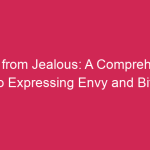Immerse yourself in the captivating world of words ending in “la,” a delightful and diverse symphony of sounds that enriches the English language. From lyrical adjectives to evocative nouns, these words possess a unique charm that captivates the imagination. Join us on an enthralling journey as we explore the myriad ways in which “la” enhances our vocabulary.
As we embark on this linguistic adventure, we will uncover the historical origins of these enchanting words, tracing their evolution from ancient tongues to their modern-day usage. We will delve into the nuances of pronunciation, revealing the subtle differences that distinguish “la” from other similar endings. Embrace your curiosity as we unravel the fascinating stories behind these intriguing words, their etymological roots, and their enduring presence in literature and daily discourse.
Throughout this exploration, we will encounter a kaleidoscope of words ending in “la.” Some, such as “beautiful” and “elegant,” conjure images of grace and allure. Others, like “familiar” and “nostalgic,” evoke feelings of comfort and longing. We will encounter words that describe the natural world, such as “flora” and “fauna,” and those that capture the complexities of human emotion, such as “melancholy” and “consolable.”
Words Ending in La: A Historical Perspective
The history of words ending in “la” is a tale of linguistic evolution and cultural exchange. Many of these words can be traced back to Latin, the ancient language of the Roman Empire. As Latin spread throughout Europe, it influenced the development of many modern languages, including English. Words like “bella” (beautiful) and “flora” (plants) entered English directly from Latin, while others, like “consolable” and “nostalgic,” were borrowed through French.
Throughout the centuries, English has also adopted words ending in “la” from other languages. The Spanish language, for instance, has contributed words like “guerrilla” (a small band of fighters) and “siesta” (an afternoon nap). The Italian language has given us words like “bella” (beautiful) and “candela” (candle). These linguistic borrowings reflect the interconnectedness of cultures and the dynamic nature of language.
The Pronunciation of “La”
The pronunciation of “la” in English can vary depending on the word in which it appears. In general, “la” is pronounced with a long “a” sound, as in the words “beautiful” and “familiar.” However, there are some exceptions to this rule. For example, in the word “guerrilla,” the “a” in “la” is pronounced with a short “a” sound. Additionally, in some words, such as “candela,” the “la” ending is pronounced with a slight nasalization.
Words Ending in La: A Literary Enchantment
Words ending in “la” have enchanted poets, writers, and musicians throughout history. The lyrical quality of these words makes them particularly well-suited for use in poetry and song. Consider the opening lines of William Wordsworth’s famous poem “Ode: Intimations of Immortality”: “There was a time when meadow, grove, and stream, / The earth, and every common sight, / To me did seem/Apparelled in celestial light, / The glory and the freshness of a dream.” The repetition of the “la” sound in words like “meadow,” “grove,” “stream,” and “apparelled” creates a sense of rhythm and flow that enhances the beauty of the poem.
In music, words ending in “la” often lend themselves to melodic and memorable lyrics. The “la” ending provides a natural rhyme scheme and a pleasing sound that lingers in the ear. Some of the most iconic love songs in history feature words ending in “la,” such as “Blue Moon” by Richard Rodgers and Lorenz Hart and “Can’t Help Falling in Love” by Elvis Presley and Hugo Peretti.
Words Ending in La: A Comprehensive List
The following is a comprehensive list of words ending in “la” in English language:
Adjectives
- Beautiful
- Delectable
- Elegant
- Familiar
- Gorgeous
Nouns
- Bella (beautiful)
- Candela (candle)
- Flora (plants)
- Guerrilla (a small band of fighters)
- Nostalgia (a sentimental longing for the past)
Verbs
- Consolable (capable of being comforted)
Adverbs
- Gently
- Gracefully
- Naturally
Other Words
- A cappella (a type of singing without instrumental accompaniment)
- Voila (an exclamation used to introduce something surprising)
Conclusion
Words ending in “la” are a rich and diverse part of the English language. Their historical origins, nuanced pronunciation, and lyrical quality make them a delight to use in both spoken and written language. From the enchanting words of poetry to the heartfelt lyrics of love songs, “la” adds a touch of elegance and expressiveness to our communication.
As we have explored in this guide, words ending in “la” encompass a wide range of meanings and emotions. They can describe the beauty of nature, the complexities of human experience, and the enduring power of love. Embrace the versatility of these enchanting words and use them to add a touch of sophistication and flair to your writing and speech.















Leave a Comment